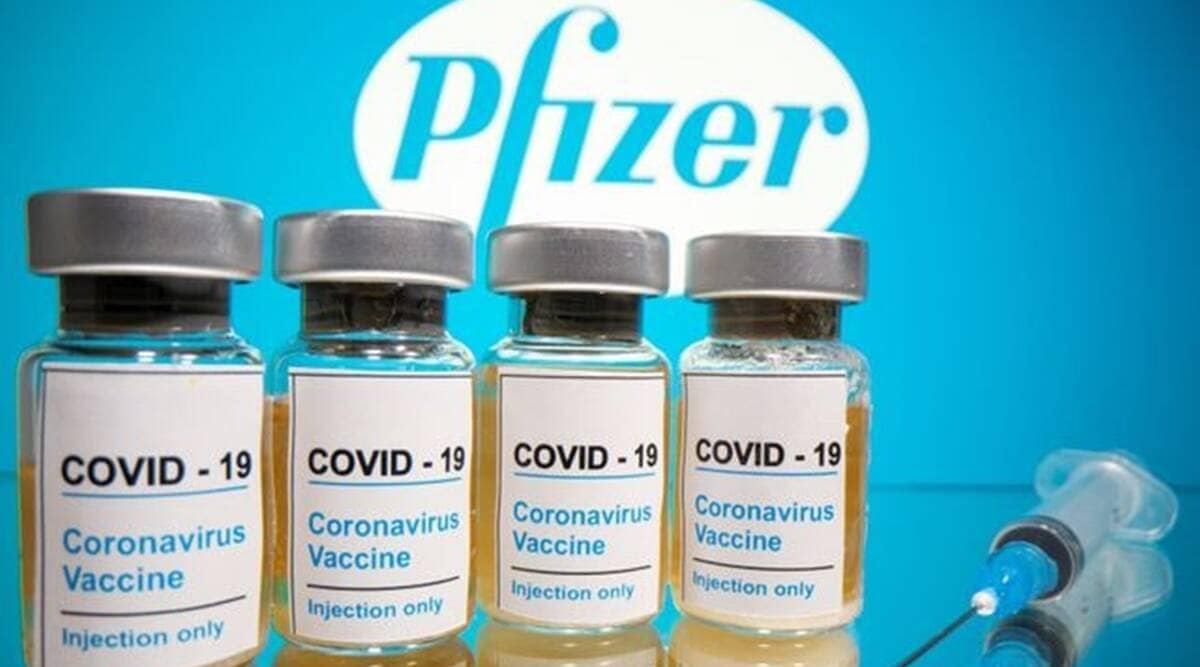
Pfizer has decided to prioritize government orders and deliver doses of Covid-19 vaccine “only through government contracts” in India.
This could mean that the vaccine of the American drug giant, developed together with BioNTech, may not be available through private hospitals in the country – unless the governments of the Center or the state decide to sell doses to these facilities.
Pfizer’s decision comes at a time when India has opened up its immunization strategy and given companies the option to charge countries and private hospitals a potentially higher rate for their vaccines.
While expressing the company’s commitment to making its vaccine available in India, a Pfizer spokesman reiterated its decision to prioritize governments in their immunization programs “at this stage of the pandemic.”
The company will provide its vaccine “only through government contracts based on agreements with the respective government authorities and after regulatory authorization or approval,” the spokesman said.
Pfizer’s statement came in response to questions from The Indian Express that the government’s decision to allow the sale of a 50% supply of a “open market” Covid-19 vaccine had an impact on its plans to India.
The company was asked how many doses of its vaccine it could provide and what prices the central government would charge on the open market.
The company was also asked if it had applied for an Emergency Use Authorization (EUA) in India and when it expected to start supplying the vaccine here.
“Pfizer remains committed to continuing our commitment to the Government to make the Pfizer and BioNTech vaccine available for use in the Government’s immunization program in the country,” the spokesman said.
The New York-based multinational pharmaceutical company was the first to approach the Central Drug Control Organization (CDSCO), India’s leading drug regulator, to allow restricted use of its Covid-19 vaccine. By the time it filed its application on December 4, the company had already received EUA in the United Kingdom. While Pfizer has not conducted local or bridge studies in connection with its vaccine in India, the provisions of the Indian Clinical Trial Rules, 2019, have allowed the company to apply for approval with exemptions from local testing, as it has already received approval. to a foreign regulatory body recognized by the CDSCO.
However, on February 5, the company said it was withdrawing its application after an expert body from CDSCO expressed safety concerns and asked it to conduct local studies in the country to prove the safety of the vaccine in the Indian population.
But with the second increase, the government reversed its position earlier this month. It allowed vaccines with EUAs in the US, the UK, the EU and Japan, as well as those with a WHO emergency list, to receive restricted use approvals in India before conducting binding studies. The announcement was made in hopes of attracting more foreign vaccines into the country.
Subsequently, the government changed its position on the opening of vaccinations and made everyone over the age of 18 eligible for shooting. In doing so, he said that 50% of the stock supplied by a vaccine manufacturer to the country could be sold to the states and on the “open market” to private hospitals.
Following this announcement, the Serum Institute of India, which provides the Covishield Center at Rs 150 per dose, decided on Wednesday to charge state governments Rs 400 per dose and private hospitals Rs 600 per dose of vaccine.
Earlier, when the central government was in charge of procuring vaccines from SII and Bharat Biotech, which produces Covaxin, it had capped the price that private hospitals could charge at Rs 250 per dose.